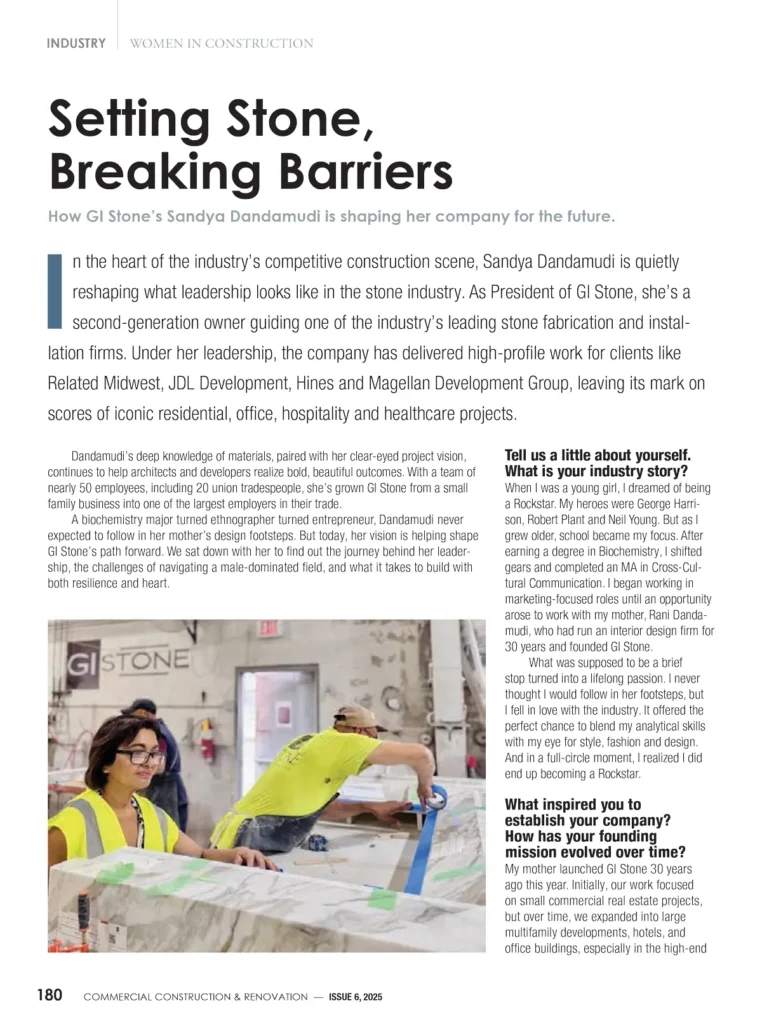Ever wondered who’s behind the intricate woodwork in your home or the sturdy framework of buildings? That’s the magic of a carpenter. Carpenters bring structures to life, transforming raw materials into functional and aesthetically pleasing elements. They play a crucial role in construction, ensuring that everything from floors to roofing is built to last.
You’ll find carpenters in various settings, whether it’s residential, commercial, or industrial projects. Their expertise spans from reading blueprints to installing fixtures, making them indispensable in the construction industry. So, what exactly does a carpenter do, and why is their role so vital? Let’s delve into the skills and responsibilities that make carpenters the backbone of any building project.
Understanding the Role of a Carpenter
Carpenters specialize in constructing, installing, and repairing structures made of wood and other materials. Their tasks range from framing buildings to crafting custom cabinetry. Carpenters interpret blueprints and plans, then measure, cut, and shape materials to exact specifications.
Key Responsibilities
- Framework Construction: Carpenters build the skeletal framework of buildings. They create walls, floors, and roofs.
- Installation: Carpenters install windows, doors, staircases, and fixtures. This includes ensuring these elements are level and secure.
- Repair and Maintenance: Carpenters repair damaged structures. They also perform routine maintenance to extend the life of wooden components.
- Finishing Touches: Carpenters apply finishes like trim and molding. They ensure a polished look for completed projects.
Essential Skills
- Blueprint Reading: Understanding blueprints is crucial. Carpenters must interpret these documents to execute the project accurately.
- Measurement Precision: Accurate measurements prevent costly mistakes. Carpenters use tools like tape measures and laser levels.
- Tool Proficiency: Carpenters use various tools. This includes hammers, saws, drills, and sanders.
- Physical Stamina: Carpentry work is physically demanding. Carpenters often lift heavy materials and work long hours.
Work Settings
- Residential Projects: Carpenters build homes, garages, and decks. They may also handle renovations and repairs.
- Commercial Projects: Carpenters work on office buildings, schools, and retail spaces. They often collaborate with other trades.
- Industrial Projects: Carpenters contribute to factories and warehouses. They construct frameworks for large-scale machinery.
Safety Protocols
Carpenters prioritize safety on job sites. They wear protective gear like helmets and gloves. They also follow safety regulations to prevent accidents and injuries.
Career Progression
Experienced carpenters may advance to supervisory roles. They can become project managers or start their own business. Mastery of skills and dedication to quality work often leads to career growth in this field.
Key Responsibilities of a Carpenter
Carpenters play a vital role in the construction industry. Their key responsibilities include construction and installation, repair and maintenance, and blueprint reading.
Construction and Installation
You are tasked with creating and installing structures. This involves building frameworks, installing doors and windows, and assembling furniture. Using tools such as saws and hammers accurately is essential. Your precision ensures that installations fit correctly and securely. Adhering to safety protocols during these tasks prevents accidents and maintains a safe working environment.
Repair and Maintenance
Maintaining and repairing existing structures falls under your duties. You might fix damaged woodwork, replace worn-out parts, and refurbish outdated fixtures. Quick and effective problem-solving skills ensure you address issues promptly, preventing further damage. Regular maintenance tasks prolong the lifespan of structures and keep them in optimal condition, reflecting your commitment to quality work.
Blueprint Reading
Interpreting blueprints accurately is crucial for your job. Understanding detailed plans helps you measure materials correctly and follow designs precisely. Your ability to read and execute these blueprints ensures the project’s success from planning to final execution. This skill requires attention to detail and an understanding of construction principles, reflecting your technical proficiency.
Skills Required to Be a Successful Carpenter
To excel in carpentry, you need a combination of technical skills, physical stamina, and attention to detail. These core abilities ensure high-quality work and efficiency on the job.
Technical Skills
You must master various technical skills to be an effective carpenter. Proficiency in using hand tools and power tools is essential. You need to understand how to read blueprints and technical drawings to interpret project requirements accurately. Knowledge of building codes and safety regulations ensures compliance with industry standards. Familiarity with different types of wood and materials allows you to select appropriate resources for specific tasks. Understanding measurement and calculation techniques is crucial for precise cuts and fits.
Physical Stamina
Physical stamina is necessary for carpenters since the job demands rigorous physical activities. You frequently lift heavy materials, requiring significant upper body strength. Standing or bending for long periods can be common during various tasks. Dexterity and hand-eye coordination are vital for operating tools safely and efficiently. The role also involves working in various environments, sometimes under harsh weather conditions, so endurance and a good physical condition are important.
Attention to Detail
Attention to detail is critical in carpentry to ensure accuracy and quality. Precise measurements are crucial for fitting materials correctly. Identifying and rectifying small flaws early prevents larger issues later in the project. You need strong problem-solving skills to adjust plans and fix problems as they arise. Ensuring all joints, fittings, and finishes meet high standards reflects meticulous craftsmanship.
Types of Carpenters
Carpenters specialize in different sectors, applying their skills to meet specific demands. Understanding the types of carpenters helps you identify the right professional for your project.
Residential Carpenters
Residential carpenters work on homes and housing developments. They handle tasks like framing, roofing, siding, and interior finishes (e.g., cabinetry and trim). Expertise in this area often requires proficiency in reading blueprints, measuring accurately, and working with various tools and materials. For example, a residential carpenter might construct a new deck or install kitchen cabinets.
Commercial Carpenters
Commercial carpenters focus on buildings used for business purposes, such as offices, schools, and hospitals. They perform duties like constructing frameworks, installing partitions, and fitting doors and windows. Projects often require coordination with other contractors, adherence to strict building codes, and managing larger teams. Tasks might include building interior office spaces or setting up retail store displays.
Industrial Carpenters
Industrial carpenters work on large-scale projects like factories, power plants, and infrastructure projects (e.g., bridges and tunnels). They build scaffolding, create molds for concrete, and assemble heavy frameworks. This role demands knowledge of specialized construction techniques and materials that can withstand significant stress and environmental challenges. Examples include constructing concrete forms for bridge supports or assembling frameworks for an industrial plant.
The Importance of Carpenters in the Workforce
Carpenters play a pivotal role in shaping the physical infrastructure of communities. Your expertise as a carpenter ensures that homes, commercial buildings, and industrial facilities are constructed and maintained to high standards. The demand for skilled carpenters remains strong due to their ability to create safe, functional spaces.
Economic Contribution
You contribute significantly to the economy. According to the U.S. Bureau of Labor Statistics, there were approximately 700,000 carpenters employed in the United States as of 2020. This large workforce impacts various sectors including residential, commercial, and industrial construction.
Versatile Skillset
Your varied skills are applicable across numerous projects. From framing to intricate finishes, your craftsmanship impacts every stage of the construction process. For example, managing complex remodeling projects requires a detailed understanding of structural integrity and building codes.
Collaboration and Teamwork
You often collaborate with other professionals such as electricians, plumbers, and architects. This teamwork ensures that projects stay on schedule and meet design specifications. Your ability to communicate effectively and coordinate tasks is essential for project success.
Problem-Solving Abilities
Your problem-solving skills are critical when faced with unexpected challenges on-site. Whether it’s dealing with structural issues or material shortages, your expertise enables you to find efficient solutions. This adaptability makes you invaluable in dynamic work environments.
Employment Opportunities
Your career path offers diverse opportunities. With experience, you can advance to roles such as site supervisor, project manager, or even start your own business. These higher-level positions often involve overseeing projects, managing budgets, and ensuring client satisfaction.
Sustainability Focus
You can also contribute to sustainable building practices. Utilizing eco-friendly materials and energy-efficient methods helps reduce environmental impact. Your role in promoting green construction practices aligns with the growing emphasis on sustainability in the building industry.
Carpenters are integral to the workforce. Your skills, knowledge, and versatility are essential for creating and maintaining the built environment, driving economic growth, and advancing sustainable practices.
Conclusion
Carpenters are indispensable to the construction industry, bringing a blend of technical skills and creativity to every project. Their ability to work with various materials and adhere to safety protocols ensures the structural integrity of buildings. Whether you’re looking to enter the field or hire a professional, understanding the diverse roles and responsibilities of carpenters can greatly benefit your endeavors. Their contributions not only shape our built environment but also drive economic growth and sustainability, making them vital to both local communities and the broader industry.
Frequently Asked Questions
What is the primary role of a carpenter in construction?
Carpenters primarily work with wood and other materials to create, install, and repair structures. They follow safety protocols and read blueprints to ensure accurate construction.
How can experienced carpenters progress in their careers?
Experienced carpenters can advance to supervisory roles or start their own businesses. Their responsibilities may include managing construction projects, installing and repairing structures, maintaining properties, and interpreting blueprints.
What are the different types of carpenters?
Carpenters can specialize as residential, commercial, or industrial carpenters. Each type focuses on specific tasks such as framing, roofing, or working with specialized materials.
How do carpenters collaborate with other contractors?
Carpenters often work with other contractors to ensure that building codes are met and projects are completed efficiently. They coordinate tasks and manage teams to achieve project goals.
What skills do carpenters need for their work?
Carpenters must have a versatile skillset that includes problem-solving, blueprint reading, and collaboration. These skills help them adapt to various projects and contribute effectively to construction teams.
How do carpenters contribute to sustainability in construction?
Carpenters play a crucial role in promoting green construction practices. They focus on using sustainable materials and building methods that reduce environmental impact.
What economic impact do carpenters have?
Carpenters significantly contribute to the economy by providing essential construction services. Their work supports various building projects, creates jobs, and fosters community development.
Are there good employment opportunities for carpenters?
Yes, carpenters have diverse job opportunities in residential, commercial, and industrial sectors. Their versatile skills and the constant need for construction make carpentry a viable career choice.



































